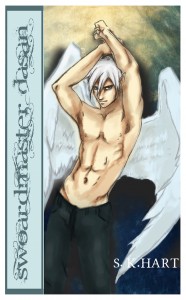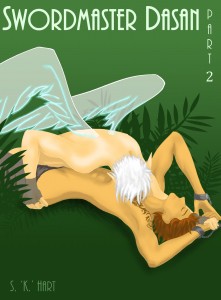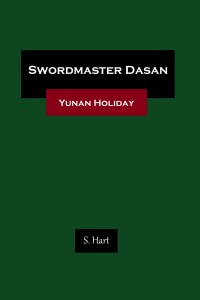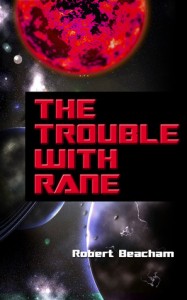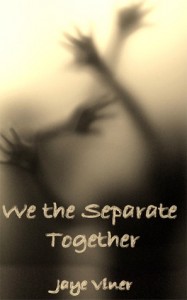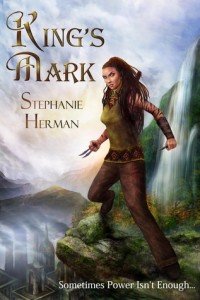 Author, Stephanie Herman, sent me an e-copy of her fantasy novel King’s Mark.
Author, Stephanie Herman, sent me an e-copy of her fantasy novel King’s Mark.
Description from Goodreads:
Chay isn’t blind; she’s just pretending to be. Some street flies fake disabilities to earn sympathy and extra coin, but Chay took up the blindfold to hide the birthmarks that condemn her. If she slips up and someone realizes what she is, she’ll be tortured and killed.
There is nothing Leti loves better than hunting along the river and practicing his stone carving. Until now, his clan’s protection has allowed him to do just that, ignorant that the birthmarks on his hands brand him a traitor.
Del Nyla lives in exile and regret, selling her swords to anyone who will pay. Every day, she risks her life in the hope that she might lose it.
These are the remnants of the King’s chosen servants, masterless and scattered. But not for long. Someone is gathering them together.
Review:
King’s Mark falls on either extreme of my mental tally sheet. In some respects it deserves the highest praise and in others it falls rather flat. My criticisms don’t outnumber my compliments, but they are rather major in the grand scheme of literary enjoyment…or at least my own literary enjoyment.
The book had a really interesting premise, but despite its length seemed thin on the important details. There were a lot of plot points the reader just had to take on faith with no explanation. Why did the king leave? What’s up with an immortal king anyway? How was he able to give people the Mark? What was Pris’ relationship to Chay and why was Chay so protective of, not to mention responsible for, her? How was a whole country convinced to buy into the persecution of the Marked they had previously loved so? Who was the Steward? I know what he was, but, who was he? Why were some Marked, Del for example, able to walk out in the open while other Marked were executed at birth? There was a lot of history between Isra, Del, Samuel, and Ket. What was their previous relationship?
Despite these remaining questions the story is an interesting one. It speaks to the dangers of too much power in the hands of too few and the injurious nature of disillusionment. It has strong undertones of the pain that almost always accompanies both the loss of innocence and the mantle of responsibility. It highlights the difficult decisions inherent in fighting for change and the need to accept loss for the greater good. And everywhere people are facing sacrifice of one nature or another.
There was also an interesting cast of characters. The dangerous and emotionally frigid Del. The steadfast and loyal Maro. The naive innocent Leti. The street-smart, battle hardened Chay. The visionary revolutionist Ket. The wounded warrior Ward. The embittered follower Isra. The list goes on. The book is full of strong character types (maybe even archetypes), even if those characters themselves sometimes felt a little shallow. I would have really liked to know more about almost everyone’s past. Because the history in this book played a very prominent role in the story. Honestly, it felt a little bit like I was reading a sequel without book one.
It was also bit slow to get moving. The main characters don’t even meet until half way through the book and some still never interact beyond introductions. This left me feeling like I was reading two or three parallel stories, as opposed to one strong, interwoven tale. As an example, I really loved Del and Maro’s interactions, but Maro never even met the younger Marked and, though he effected Del’s decisions, he played no notable role in the main events. Meaning his thread of the story never felt fully tied in.
Lastly, I had a lot of trouble with the characters’ ages. Both because they weren’t always explicitly stated, Leti was somewhere between 13-15 for example, and because some of the characters just seemed far too young for the characters they play. For example, Chay seemed to have a particular flare for whipping people, adult people, to revolutionary action but then about 90% through you find out she’s supposed to be twelve. Seems a little too young to be taken seriously. Then sometimes their ages contradict their lives and/or the timeline. Unless I misunderstood, Del was roughly 25, but Maro who was 19 grew up listening to tales of her battle prowess. Was she sent to war at 5ish? All in all the ages felt a little like a muddled mess.
The writing, however, is really superb. Character’s had regional speech patterns that gave everything a bit of colour. Heck, there was even an amazingly communicative mute. That can’t be easy to write. I especially appreciated the fact that Herman didn’t flinch from the tragedy. People died, sometimes in horrific ways, with no reasonable expectation of rescue. Anything less would have compromised the integrity of the story.
King’s Mark is worth picking up, worth the time it takes to read. Just go in knowing all of your questions won’t be answered, knowing that you just have to accept some things as the way it is. But when facing the dyeing, morally diseased corpse of the city of Durata maybe it’s unreasonable to expect anything else.

